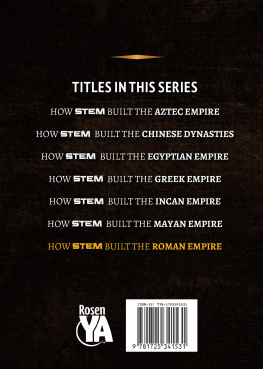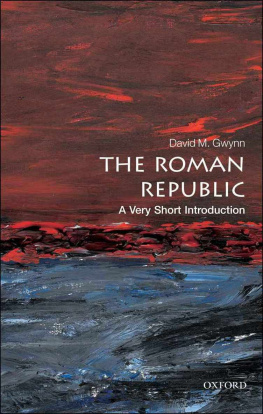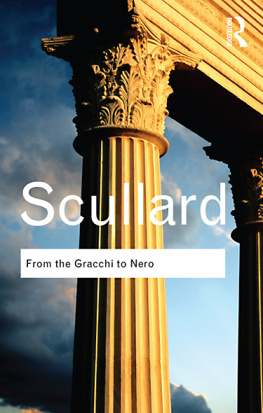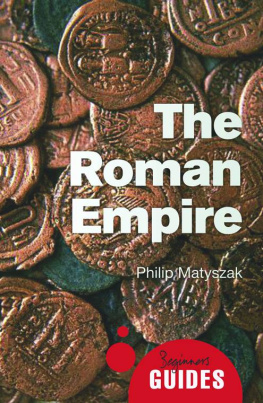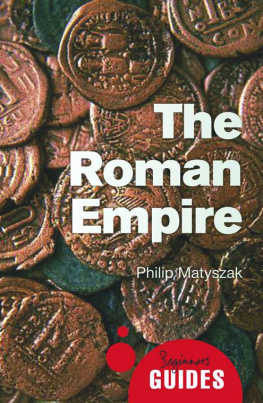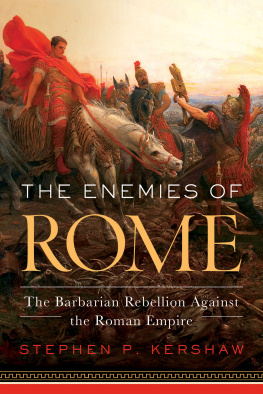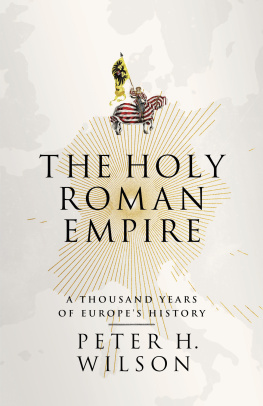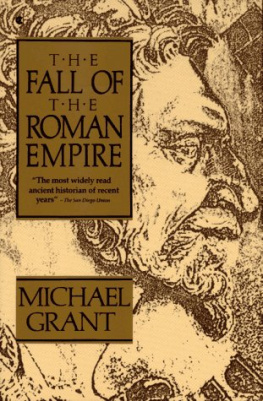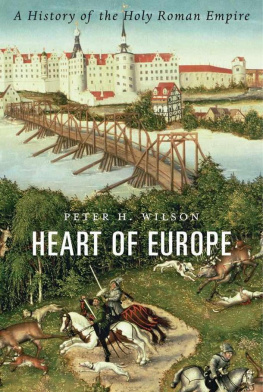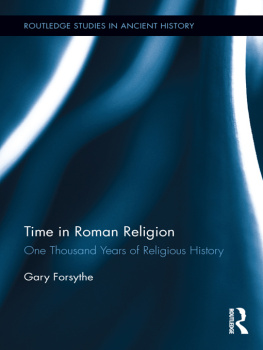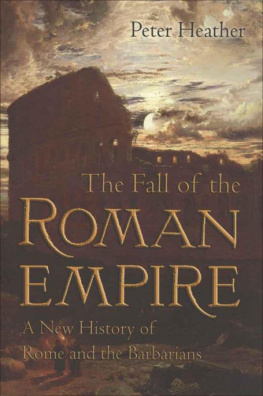The Rise and Fall of the Roman Empire:
Life, Liberty, and the Death of the Republic
By Barry Linton
Copyright 2015 by Make Profits Easy LLC
profitsdaily123@aol.com
Table of Contents
Foreword
Rome is everywhere in our culture. It's reflected in our films, in our religions, in our laws, and in our very language. While the Roman Empire as we have come to know it no longer exists, what remains of their awe-inspiring legacy has been left behind across three continents. Images and texts still exist along with the many great structures of this ancient culture. The images, sights, and sounds of the fervent uproar of Roman culture are ingrained in the minds of people everywhere.
Even as a commentary on the nature of man, the life and times of ancient Rome is fascinating and often thrilling. It began as nothing more than a small group of settlements along the River Tiber in central Italy, and there were many rivals only a few short kilometers away. In time Rome conquered the entire peninsula and even grew powerful enough to destroy Carthage in North Africa. Rome continued to grow and eventually pursued a course of conquest that would span the Mediterranean Sea and into modern-day France and Britain. Eventually these and more were brought into the fold of the Roman civilization, leaving their mark forever. Rome impresses with its innovations, many unique and unheard-of in that time. Rome sought to grow and much of its success is owed to its policy of extending citizenship to the peoples that they conquered. Vastly different cultures were combined and their histories and values added to. This resulted in an empire consisting of many peoples of many different religions and many different races.
Administering to such a vast empire was incredibly difficult made even more difficult by the ambitions of military dictators and politicians. The Roman world was in nearly constant upheaval over the span of its life, with many struggles between great leaders. Drama was high and larger-than-life figures like Caesar and Pompey or even Antony and Cleopatra played important roles in the fate of this great land. Eventually Octavian rose to power and became the first Roman Emperor and one by one introduced a new system of laws whose influence is felt even today. Much of the success of that period and the laws that have been handed down depended upon the character and good intentions of that one individual. There were many good emperors who intended good things for their people, but the growth and stability of Rome was offset by the madness and turmoil brought by bloodthirsty tyrants like Nero or even Caligula. But even with the setbacks, the Roman Empire continued to flourish. Many new cities rose and older ones grew and were improved. Every part of the Empire was linked by a network of roads, completely unheard of in other parts of the world previous to this. The Romans were masters of innovation bringing sewer systems and vast networks of water supplies to their cities. Great feats of architecture and public works were created and came to define Roman life. Common to most major Roman cities were public baths, circuses, temples, and forums to speak your mind. Perhaps the most well-known structure of all, the Coliseum, stood stark and massive against the Roman skyline. It brought wealth and spectacle while gladiators fought and died for entertainment and glory. Houses and other tenements dotted the countryside and filled every street. Rome also brought rise to Townhouses and country villas. Culture flourished in Rome and through them the borrowed Greek culture lived on and was added to with great Roman contributions of arts, literature, philosophy, and magnificent architecture. Rome has a great history of incorporating elements from every culture combined into it and making them truly Roman.
Beginning in the third century A.D. and onward, peace within this empire was increasingly threatened by many conflicts between political rivals and emperors, and the borders were pressed upon, forcing the Legion to fiercely attempt to defend. The Imperial borders were pressured by barbarian tribes and raiders, and warfare ensued nearly constantly. While the political history of Rome is tumultuous, Rome was known for its resiliency and it managed to survive even while massive and widespread changes occurred within it, culminating in the adoption of Christianity which eventually became its exclusive religion. Finally by the fifth century, the Empire of Rome broke into pieces and completely collapsed in the West by 476 when the last Emperor abdicated his throne. In the East, the Roman Empire continued to live on for another thousand years in the form of the Byzantine Empire. The influences of Rome are far-reaching and even with the fall of these successors, Roman reach is still felt today. Rome has indelibly left its mark upon many civilizations and their very histories to this day.
The history of Rome's rise was slow and methodical, like all great things taking time for the true shape to appear. Their early history is defined by driving out their kings and developing the Republic. It is this Republic that led to the great conquests that built the Empire. Without their Republic, none of the great expansion and combining of cultures could have taken place. When Rome defeated Carthage, they became master of the Western Mediterranean. Their eyes soon turned to Greece and to Egypt and they made them into Roman provinces, bringing their people and the unique flavor of their way of life into the fold.
Julius Caesar, the great statesman and conqueror, expanded the Roman Empire, their borders, and rule far beyond the Mediterranean into northwestern Europe. The magnitude of these successes are monumental. All of this occurred within 500 years and is a testament to their dedication and unbreakable tenacity that they accomplished this much. It is a testament to the martial skill and might of the well-trained Roman legions. For the majority of its history Roman legionaries were unbeatable in the field of battle, known for their organization, supreme training doctrines, and the resulting effectiveness in the battlefield. Rome was essentially the first great superpower of the world, yet despite this complicated yet seemingly stable Republican institution, cracks began to appear in the foundations.
There were dire consequences and soon civil war broke out, finally resulting in a single man taking the throne and becoming the first of the Roman emperors. That man was Augustus. The Empire continued to fair exceedingly well and its culture spread, ruled by laws and enforced by the same. By the third century A.D. the Roman Empire was put under increasingly intense pressure. And by the fourth century Christianity became the primary state religion. Finally the empire was put under immense strain, fighting to hold the borders from invading German tribes. These Germanic tribes looted and killed, ran wild, and even sacked Rome. The Western Roman Empire ended in 476, its puppet ruler leaving his throne of power behind. The Roman Empire in a way lived on in the Greek-speaking Eastern empire, which in many ways was a Roman state for nearly 1,000 years more.
This book is by no means a complete account of everything that happened in Roman history, but the aim is to highlight and explain the culture and the significant events that shaped the influential Empire and ultimately led to its downfall.
Chapter 1: Foundation of Rome
The origins of Rome are humble, beginning as nothing more than a group of hilltop villages. Yet it was this very location upon the hilltop that initially proved key to their survival. It was easily defensible against intruders who in many cases ventured through the marshy low lands populating the area around the river Tiber. The site of this foundation of Rome was eventually known as the famous Seven Hills. And over time it proved to have even greater advantages. The location of this foundation of the Empire proved to be key because it allowed them to control the fastest and most convenient north-south route across the Tiber River. Their location was just over 16 miles from the sea. This placed them in the key position to seek out and control trade with central Italy. This settlement on those famous Romans Seven Hills appears to have started back in the 10th century BC. Many Latin-speaking groups soon moved to the area. They initially occupied and settled the land known as Latium, located south of the Tiber River. The settlements began to grow and by the seventh century BC, villages began to join together. In the Valley between the great hills of Palatine and Esquiline, a great Civic Center was constructed and utilized.
Next page

